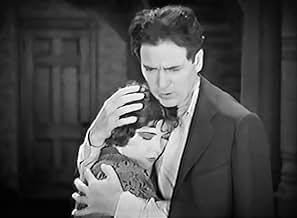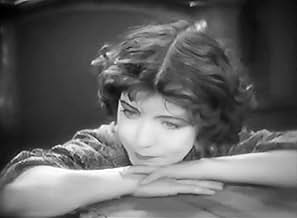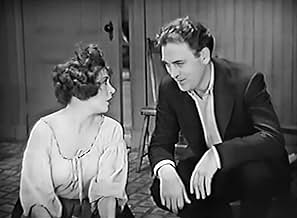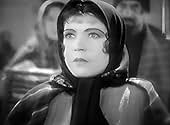Aggiungi una trama nella tua linguaA WWI vet takes on the KKK when he loses his wife to a womanizing Klansman.A WWI vet takes on the KKK when he loses his wife to a womanizing Klansman.A WWI vet takes on the KKK when he loses his wife to a womanizing Klansman.
- Regia
- Sceneggiatura
- Star
- Premi
- 4 vittorie totali
Symona Boniface
- Woman at Welcome-Home Party
- (non citato nei titoli originali)
Delmer Daves
- Undetermined Role
- (non citato nei titoli originali)
Christian J. Frank
- Wife Beater
- (non citato nei titoli originali)
Herman J. Mankiewicz
- Newspaperman
- (non citato nei titoli originali)
Broderick O'Farrell
- Poker Player on Train
- (non citato nei titoli originali)
Frederick Sullivan
- Poker Player with Rabbit's Foot
- (non citato nei titoli originali)
Will Walling
- Uncle Billy - Townsman
- (non citato nei titoli originali)
Recensioni in evidenza
Rennee stole the picture. She was the most photogenic of all the players. The discretion of the censors to allow the swimming scene was a real plumb. I was certainly interested to see the interactions of the supposed "Order" and the principle players. A good amount of tension was generated in the last half of the picture. Helen Foster played a small part. I don't recall seeing her before and she was very photogenic as well. Although some of the scenes were dark, the version I watched on TCM was a remastered copy and the quality was quite good in fact, it was excellent. Very unfortunate that Renee Adoree tragically died so young. She was a real beauty.
This movie is a unique glimpse into the culture of the period. One outstanding item is the depiction of a clan-type organization who acts more as a community secret police (seriously flawed in their self-righteous and heavy handed rule) in general than as a specifically racist group. I had always heard about this being their main historic role because in many parts of the country where these groups existed, there were simply not sufficient numbers of minorities around to pick on and by their nature these groups had to pick on someone.
The film's treatment of sexuality seems far more erotic just in the suggestion of nudity and intimate touching than today's practice of "anything goes" sexual contact and the full nudity of multi-millionaire, artificially enhanced actors. I know old-timers and conservatives have been saying this for years but seeing this movie proves the point.
I was so interested in the acting that I really didn't care about the plot. Also, the film is so well restored that it is almost in 3-D.
The film's treatment of sexuality seems far more erotic just in the suggestion of nudity and intimate touching than today's practice of "anything goes" sexual contact and the full nudity of multi-millionaire, artificially enhanced actors. I know old-timers and conservatives have been saying this for years but seeing this movie proves the point.
I was so interested in the acting that I really didn't care about the plot. Also, the film is so well restored that it is almost in 3-D.
Leslie Hatten (Thomas Meighan) goes away to fight WW1. He secretly marries beautiful Rose (Evelyn Brent). He returns 2 years later to find their marriage annulled and she's married to Lon (Alan Roscoe). She still wants to sleep with Leslie but he refuses her. However Lon thinks she IS sleeping with him and is a member of The Order--a Ku Klux Klan-like organization who punish everyone they think isn't "moral" enough.
There's more but that's the gist. Fast-moving, pretty racy (Brent flashes some nudity), well-acted and directed drama. It brings up multiple themes--WW1, marriage, adultery, suicide, murder, secret organizations punishing people--and mixes them all up and throws them at the viewer in an entertaining way. This doesn't seem to be making any sort of statement (although it does strongly suggest that The Order is wrong) but just gives the viewer a fast-paced entertaining drama. This was thought to be lost for many years but was discovered and lovingly restored. We should all be happy for that. I give it a 7.
There's more but that's the gist. Fast-moving, pretty racy (Brent flashes some nudity), well-acted and directed drama. It brings up multiple themes--WW1, marriage, adultery, suicide, murder, secret organizations punishing people--and mixes them all up and throws them at the viewer in an entertaining way. This doesn't seem to be making any sort of statement (although it does strongly suggest that The Order is wrong) but just gives the viewer a fast-paced entertaining drama. This was thought to be lost for many years but was discovered and lovingly restored. We should all be happy for that. I give it a 7.
THE MATING CALL was shown on TCM on Dec. 15, 2004, marking its apparent first screening since 1928. The silent film is something of a morality play, complete with a returning soldier who has lost his wife (to an adulterer); a morals police force, the Order, in dark cloth hoods (except for the leader, who wears satin); one woman drenched by a bucket of water and another caught skinny-dipping; and some provocative eyebrow acting. Evelyn Brent radiates sex as Rose, while Thomas Meighan seems mostly confused as the farmer who needs a replacement woman -- and goes to Ellis Island to get one! THE MATING CALL, directed by James Cruze (I COVER THE WATERFRONT), ably entertains while carrying a rather more serious theme on hypocrisy.
Evelyn Brent was a marvelous and smolderingly beautiful actress of the silent screen who made a staggering number of films from 1915 to the 1940s. This film is worth seeing for her alone. Her performance as a small town vamp holds up completely by 21st century standards and that's not common. James Cruze has a good reputation and it's easy to see why from this film. The action moves briskly, scenes do not linger unnecessarily but only when emphasis is needed. Intimate moments are handled skillfully and believably. Set pieces are convincing. Here is a movie where someone scrubs a floor and really does the kind of work you have to do to scrub a floor, though I was a bit surprised to see Renee Adoree sloshing the entire contents of a water basin directly onto the linoleum during the rinse phase. It really annoyed me that she became distracted and let the puddle (or lake, really) remain and if I had been Thomas Meighan's character I would have been much more upset than he seemed to be. Meighan seems a bit wooden and but I think he was trying to play a simple farming man with a tough exterior.
I am not the only one who noticed that the women's costumes and hair styles (not to mention the automobiles) were way too modern for the time period presented, 1919. Cloche hats did not make their appearance that soon after World War I. Another element that cannot be ignored are the palm trees in this town, which suggest that the action takes place in southern California, but when the Meighan character decides to find an off-the-boat immigrant to marry, he travels to Ellis Island, thousands of miles to the east, even though he is a struggling farmer. Then presto! He's back in Southern California with the newfound bride and her parents who look no worse for wear than if they had been trucked in from a neighboring county. To be fair, these jolting progressions seem to be standard fare in early films and are also used quite a bit in early talkies. But for us sophisticated 21st century viewers they do stretch credulity and get in the way of our serious involvement in the proceedings.
One strand of the plot involves a KKK-like organization called "The Order." But this is not the KKK we're all familiar with this group of hooded vigilantes rounds up local men who are perceived to be less than honorable to the town's womenfolk and whips them on posts until they repent and agree to behave in a more chivalrous manner! To contemporary audiences this comes across as a very funny joke.
I am not the only one who noticed that the women's costumes and hair styles (not to mention the automobiles) were way too modern for the time period presented, 1919. Cloche hats did not make their appearance that soon after World War I. Another element that cannot be ignored are the palm trees in this town, which suggest that the action takes place in southern California, but when the Meighan character decides to find an off-the-boat immigrant to marry, he travels to Ellis Island, thousands of miles to the east, even though he is a struggling farmer. Then presto! He's back in Southern California with the newfound bride and her parents who look no worse for wear than if they had been trucked in from a neighboring county. To be fair, these jolting progressions seem to be standard fare in early films and are also used quite a bit in early talkies. But for us sophisticated 21st century viewers they do stretch credulity and get in the way of our serious involvement in the proceedings.
One strand of the plot involves a KKK-like organization called "The Order." But this is not the KKK we're all familiar with this group of hooded vigilantes rounds up local men who are perceived to be less than honorable to the town's womenfolk and whips them on posts until they repent and agree to behave in a more chivalrous manner! To contemporary audiences this comes across as a very funny joke.
Lo sapevi?
- QuizLong thought to be lost, a print was discovered in the Howard Hughes collection at the University of Nevada, Las Vegas.
- BlooperAlthough the story takes place immediately after World War I (1918-1919), all of Evelyn Brent's and Helen Foster's clothes are strictly in the 1928 short skirt mode, completely out of place in the time frame of the story.
- Citazioni
Poker Player: Major Hatten seems to be suffering from shell shock.
Hatten's Best Man: Worse than that! He's in love - with his own wife.
- Versioni alternativeIn 2004, the University of Nevada Las Vegas and Flicker Alley, LLC copyrighted a digitally restored version with a new orchestral score composed, arranged and conducted by Robert Israel. It was produced by Jeffery Masino and runs 72 minutes.
- ConnessioniReferences The Sky Rider (1928)
I più visti
Accedi per valutare e creare un elenco di titoli salvati per ottenere consigli personalizzati
Dettagli
- Data di uscita
- Paese di origine
- Lingue
- Celebre anche come
- Mating Call
- Luoghi delle riprese
- General Service Studios - 1040 N. Las Palmas, Hollywood, Los Angeles, California, Stati Uniti(studio - known as Metropolitan Studios at the time)
- Azienda produttrice
- Vedi altri crediti dell’azienda su IMDbPro
Botteghino
- Budget
- 400.000 USD (previsto)
- Tempo di esecuzione
- 1h 12min(72 min)
- Colore
- Mix di suoni
- Proporzioni
- 1.33 : 1
Contribuisci a questa pagina
Suggerisci una modifica o aggiungi i contenuti mancanti


































